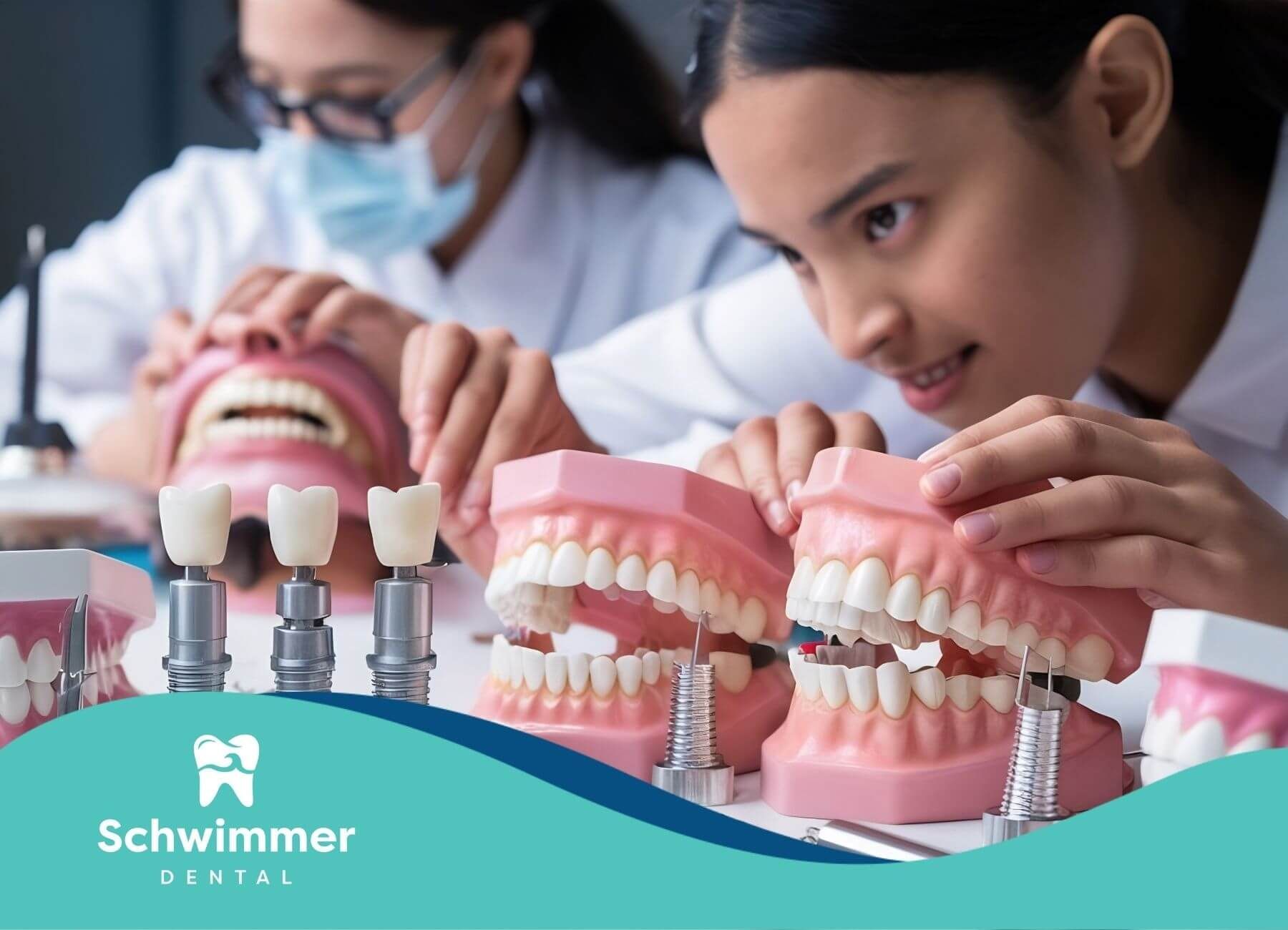Vegan Diet and Oral Hygiene: What You Should Know
More people than ever are embracing a plant-based lifestyle, motivated by health benefits, environmental concerns, and ethical reasons. While a vegan diet can offer many nutritional advantages, it can also present specific challenges when it comes to oral health. Like all diets, a vegan diet affects your teeth and gums in both positive and negative ways.
In this article, we’ll explore how a vegan diet impacts oral hygiene, common dental concerns for vegans, essential nutrients for a healthy mouth, and practical tips to maintain strong teeth and gums.
What Is a Vegan Diet?
A vegan diet excludes all animal products. This means no meat, dairy, eggs, or other animal-derived ingredients. Instead, vegans rely on plant-based sources for nutrition, including fruits, vegetables, grains, legumes, nuts, and seeds.
While this diet is rich in fiber, antioxidants, and healthy plant compounds, it may lack certain nutrients that are critical for oral health—especially if the diet is not properly balanced.
How a Vegan Diet Affects Oral Health
A well-planned vegan diet can support excellent health, but it also carries unique risks for your teeth and gums. Let’s take a closer look at the pros and cons.
Potential Oral Health Benefits of a Vegan Diet
- Less Saturated Fat and Sugar (in whole-food diets): Whole-food vegan diets are typically lower in saturated fat and added sugars, both of which can contribute to gum disease and tooth decay.
- Rich in Antioxidants: Fruits and vegetables are packed with antioxidants, which may help reduce inflammation in the gums and support overall immune health.
- High in Fiber: Fiber-rich foods like leafy greens, beans, and whole grains help increase saliva production, which naturally cleanses the mouth and neutralizes acids.
Oral Health Challenges for Vegans
Despite the benefits, there are several common oral health concerns among those who follow a vegan diet:
1. Vitamin B12 Deficiency
B12 is essential for nerve health, red blood cell production, and overall cellular function. A deficiency can lead to:
- Mouth ulcers
- Burning sensations on the tongue
- Gum disease
- A higher risk of tooth loss
Since B12 is mostly found in animal products, vegans must take supplements or eat fortified foods.
2. Calcium and Vitamin D Deficiency
These nutrients are crucial for strong teeth and bones. Inadequate calcium and vitamin D can increase the risk of:
- Tooth decay
- Gum disease
- Jawbone deterioration
Fortified plant milks, leafy greens, and supplements can help maintain adequate levels.
3. Low Protein Intake
Protein supports tissue repair, including the gums. Some vegans struggle to get enough high-quality protein, leading to slower healing and increased gum inflammation.
4. Phytic Acid and Tooth Decay
Many plant-based foods (especially legumes, nuts, and seeds) contain phytic acid, which can inhibit calcium absorption. Over time, this could potentially weaken teeth.
5. Acidic and Sugary Plant-Based Foods
Frequent consumption of acidic fruits, fruit juices, and sticky dried fruits can erode enamel and feed bacteria that cause cavities. Some vegan processed foods also contain high amounts of sugar.
Essential Nutrients for Oral Health
To maintain strong teeth and gums on a vegan diet, focus on getting these key nutrients:
1. Calcium
Vital for strong teeth and bones.
Vegan sources:
- Fortified plant-based milks (soy, almond, oat)
- Tofu
- Broccoli
- Kale
- Chia seeds
2. Vitamin D
Helps your body absorb calcium and strengthens the immune system.
Vegan sources:
- Fortified foods (plant milks, orange juice)
- Mushrooms exposed to sunlight
- Vitamin D2 or vegan D3 supplements
3. Vitamin B12
Prevents gum disease and supports nerve health.
Vegan sources:
- Fortified cereals and plant milks
- Nutritional yeast
- B12 supplements
4. Iron
Prevents anemia and mouth sores.
Vegan sources:
- Lentils
- Spinach
- Quinoa
- Pumpkin seeds (consume with vitamin C-rich foods to enhance absorption)
5. Omega-3 Fatty Acids
Reduce inflammation, including in the gums.
Vegan sources:
- Flaxseeds
- Chia seeds
- Walnuts
- Algae oil supplements
6. Protein
Supports gum and tissue repair.
Vegan sources:
- Lentils
- Chickpeas
- Tofu
- Tempeh
- Seitan
Oral Hygiene Tips for Vegans
You can enjoy the benefits of a vegan diet without compromising your dental health. Here’s how:
1. Brush Twice Daily
Use fluoride toothpaste to strengthen enamel and prevent cavities.
2. Floss Every Day
Flossing removes plaque and food particles from between teeth where a toothbrush can’t reach.
3. Use a Fluoride Mouthwash
A fluoride rinse adds an extra layer of protection against cavities, especially if you consume a lot of acidic or sugary plant-based foods.
4. Chew Sugar-Free Gum
Chewing gum stimulates saliva, which helps wash away acids and food debris.
5. Drink Plenty of Water
Water helps rinse the mouth, dilute acids, and keep you hydrated. Aim to drink after every meal and snack.
6. Limit Acidic and Sticky Foods
Citrus fruits, fruit juices, and dried fruits are common in vegan diets but can harm enamel if consumed too often. Rinse your mouth with water afterward.
7. Eat Balanced Meals
Don’t rely solely on carbs or processed vegan foods. Include a variety of vegetables, legumes, whole grains, nuts, and seeds to meet your nutritional needs.
8. Take Supplements When Needed
If you’re not getting enough B12, vitamin D, or calcium through diet alone, supplements are a helpful way to prevent deficiencies that affect your oral health.
The Importance of Regular Dental Visits
No matter your diet, regular dental checkups are essential. Your dentist can monitor for signs of gum disease, enamel erosion, and nutritional deficiencies. Routine cleanings remove plaque and tartar buildup that can’t be eliminated by brushing and flossing alone.
Let your dentist know about your dietary habits so they can offer personalized advice and care.
Common Myths About Veganism and Oral Health
Myth 1: A Vegan Diet Automatically Improves Oral Health
While plant-based diets can reduce intake of harmful fats and processed foods, they also risk nutrient deficiencies if not well-planned.
Myth 2: Vegans Don’t Need to Worry About Gum Disease
Gum disease isn’t just caused by poor diet—it’s also linked to oral hygiene habits, genetics, and immune response. Vegans still need to brush, floss, and visit the dentist regularly.
Myth 3: Natural Sugars From Fruit Are Harmless
Even natural sugars can contribute to tooth decay. The stickiness of dried fruits and the acidity of citrus fruits can be just as damaging as processed sugars if oral hygiene isn’t maintained.
Special Considerations for Children on a Vegan Diet
If your child follows a vegan diet, it's especially important to monitor their intake of calcium, vitamin D, and B12. Children’s teeth are developing and need adequate nutrients to form strong enamel and healthy gums.
Speak with a pediatric dentist or dietitian to ensure your child is getting all the nutrients necessary for strong oral development.
Vegan Diet and Oral Health: Final Thoughts
Choosing a vegan lifestyle offers many benefits for your overall health and the planet. However, it’s important to be mindful of how your diet affects your oral hygiene. With the right balance of nutrients, good oral hygiene practices, and regular dental care, vegans can maintain healthy teeth and gums for life.
If you’re following a plant-based diet and have questions about your oral health, Schwimmer Dental is here to help. Our team understands how lifestyle choices impact dental wellness and can provide the support and guidance you need to protect your smile.
Frequently Asked Questions
Can a vegan diet cause cavities?
A vegan diet can contribute to cavities if it’s high in sugars (like dried fruit or fruit juices) and lacks proper oral hygiene. However, a balanced vegan diet with good dental care can help prevent decay.
Do vegans need to take dental supplements?
Many vegans benefit from taking vitamin B12, calcium, and vitamin D supplements to avoid deficiencies that can affect teeth and gums.
How often should vegans visit the dentist?
Vegans should follow the same dental checkup schedule as everyone else—typically every six months. However, more frequent visits may be recommended if there are signs of nutrient deficiencies or gum issues.
Sources:
- https://www.forksoverknives.com/how-tos/plant-based-primer-beginners-guide-starting-plant-based-diet/
- https://pmc.ncbi.nlm.nih.gov/articles/PMC8070188/
- https://www.medicalnewstoday.com/articles/calcium-deficiency-teeth
- https://pmc.ncbi.nlm.nih.gov/articles/PMC10230257/
- https://www.colgate.com/en-us/oral-health/gum-disease/family-history-affects-your-risk-for-gum-disease



